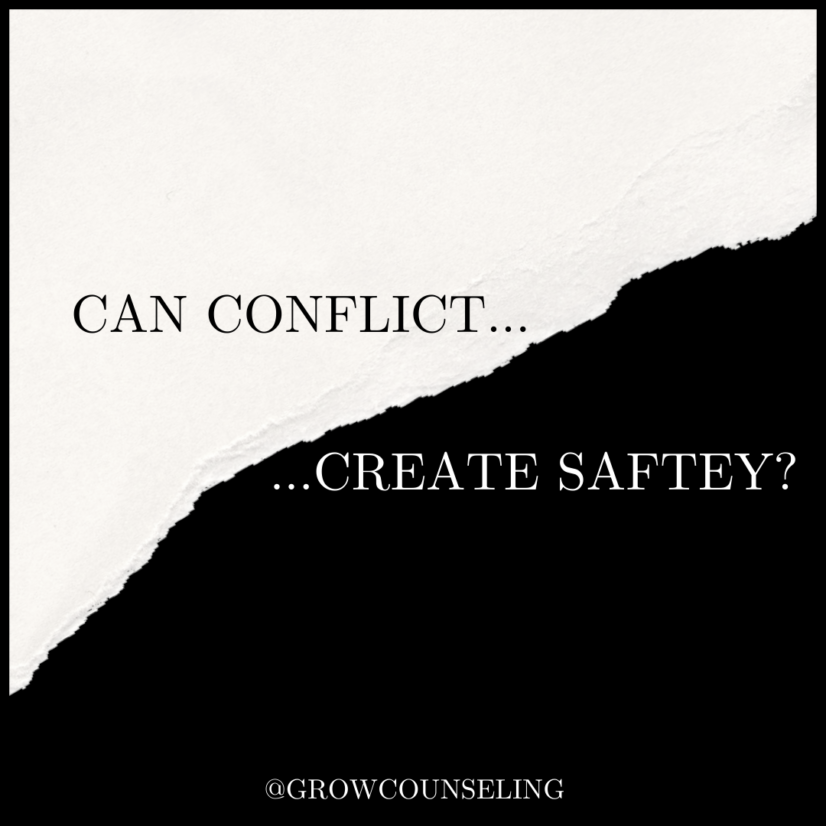Conflict is rarely looked upon favorably, despite the fact that it is a part of life. Words used within the definition are incompatible, clash, disagreement, argument, opposition. The reality is, when done in a healthy way, conflict can strengthen our relationships. When we have a relational rupture and it is truly repaired, not just brushed over, we build trust. We begin to believe that even if something bad happens, if there is a disagreement or maybe even something more serious, like a betrayal, that we can work through it and figure it out together.
These lessons regarding conflict are especially important in relationships with kids and teenagers who have experienced trauma. The foundation of a secure attachment is the ability to repair a rupture, not that there won’t be any ruptures. When a teen is able to re-experience positive affect after a negative interaction or experience, they learn that those negative feelings can be tolerated, and relational stress can be regulated. It allows them to learn that people can stay and that their worth is not in their behavior. It practices the felt shift from relational misattunement back into attunement and creates safety.
Repairs are about relationships, and that relational attunement can then lead to change. In the midst of busy schedules and many other things going on, it can be easy to jump straight to change. When we say things like, “I’m going to repair this with you, don’t do it again,” this “repairs” with a barter: relationship for good behavior. We want it to be clear that the love and relationship are unconditional, and be able to address behavior separately. In order to do this well, we need to focus on keeping the balance of understanding and change. We want to lead with understanding and then expect change. When we are aggressive in our response, we are expecting change without any understanding, and when we are only indulgent (only understanding, but not expecting change), we are communicating that we don’t expect health from them. When we expect health, we are essentially communicating that we believe in them, and are calling them into who they were created to be. A relationship is healthy when we are able to experience both understanding and an expectation of change without shame.
Navigating these relational ruptures and repairs and pursuing relational attunement can be difficult at first, and is an intentional practice, but one worth investing in. Each time is an experiential lesson in building secure attachment, emotion regulation, distress tolerance, and healthy relationships. I believe experiencing understanding and having someone believe we are capable of becoming more than we are in a safe and encouraging way is something that everyone should get to experience, even if it takes some work to get there.
Written By: Courtney Hintermeyer, LPC

